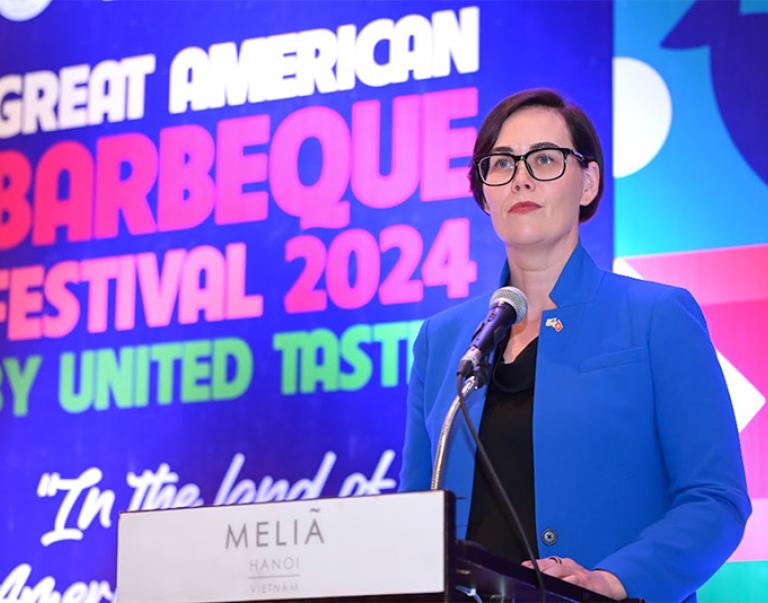1890 National Scholar Works to Improve Access to Affordable, Healthy Food

“Many people come to college but don’t know what they want to do,” said Reese Baker, U.S. Department of Agriculture (USDA) 1890 National Scholar and junior at Southern University A&M in Baton Rouge, Louisiana. Baker had also felt the same way until she changed her major and followed her passion for agriculture.
Baker’s interest in agriculture stems from a desire to improve and eliminate food deserts in the Houston area, where she grew up. A food desert is an area with limited access to plentiful, affordable or nutritious food often characterized by a lack of supermarkets and fresh food options. These areas are typically found in low-income communities.
Her new major is in business agriculture with specific focuses on supply chains and marketing. She aspires to create innovative supply chain strategies and marketing campaigns to bring fresh, affordable and nutritious food to these areas.
Being named a USDA 1890 National Scholar in 2023 was a relief and inspiring experience for Baker. “I wanted to have a scholarship where I knew I could have job security and also do something I’m passionate about,” she said.
The 1890 National Scholars Program encourages students at historically Black land-grant universities established under the Second Morrill Act of 1890 to pursue food and agriculture careers. Sponsored by Senator Justin Morrill of Vermont, the act’s goal was to expand the opportunities for Black students to access education, specifically in agriculture and mechanical arts. Scholarship recipients receive full tuition, fees, books, room and board, and the option of work experience at USDA through summer internships. 1890 National Scholars are also eligible for noncompetitive conversion to a permanent appointment with USDA upon successful completion of their degree requirements by the end of the agreement period.
In the summer of 2024, Baker interned with USDA’s Farm Service Agency where she gained hands-on experience assisting farmers with loans and providing operational support and customer service. She also had the opportunity to shadow various positions to gain insights into the diverse roles within the agency. Baker’s experience in Washington, D.C. during her internship allowed her to be more open-minded about new locations and duties. “I was grateful for the experience because it opened my eyes, got me out of my box, and gave me confidence to explore other areas and agencies” she said.
USDA is certainly in Baker’s post-college plans as the mission and people have left an impact on her. “I was drawn to USDA and how everybody is unified with the goal of helping the world we live in,” she said.
Learn more about the USDA 1890s National Scholars Program at www.usda.gov/partnerships/1890NationalScholars.



